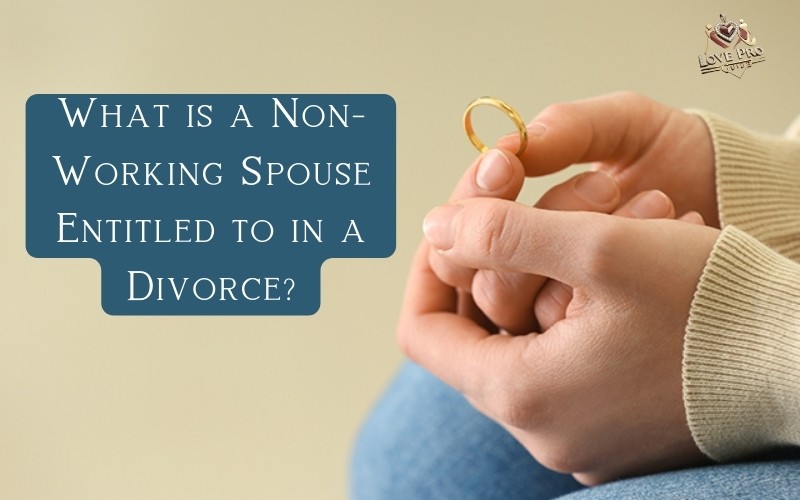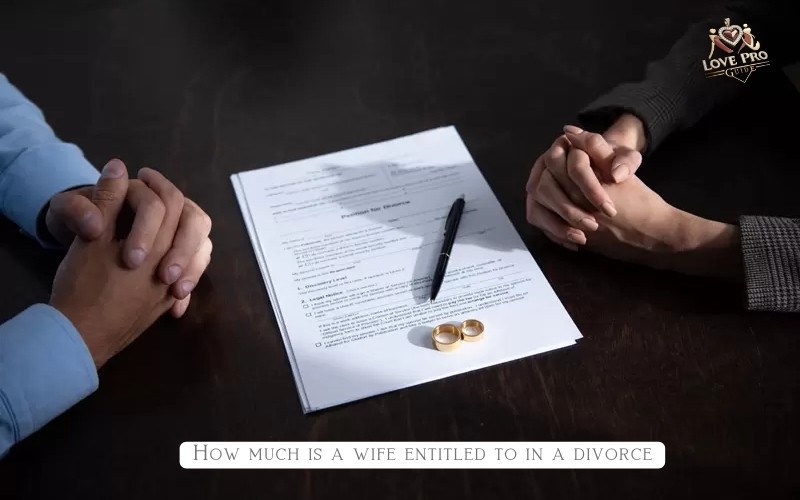The Nitty-Gritty of Divorce and Separation: An Essential Stability Exercise
The way divorce and separation is dealt with varies greatly depending on the circumstances of the couple; but one thing that stays consistent, bar none- it is extremely charged emotionally as well as legally.
People are unclear on what rights or obligations they have, and most of all about how we will make our way through these years in upheaval. When there is nothing left but love Read Online.
This blog will help give a more in-depth view on divorce and separation, cover some common questions that are out there and debunk some of the myths often seen online too.
What is a Silent Divorce?
When a couple is legally married but living essentially separate lives we call this kind of situation a silent divorce.
If a person feels as if this is impossible for them to do, they may end up staying in abusive relationships due financial constraints or potentially social pressure and an image of looking like the perfect happy married couple.
The couples are now emotionally divorced but still living in the same home managing duties and escaping to their own world with no emotional connection, loverlar intimacy or understanding of each other.
Emotional distance can result in feelings of loneliness, bitterness and unhappiness with time, causing couples to identify this behaviour early on so it does not become unfixable.
What is the Walk Away Wife Syndrome?
Angry-wife syndrome is a well-known pattern of behavior in which “the wife or female partner has long-term (but not continuous) vague but unspecific complaints about the husband, frequently described as anger, frustration with him and restlessness.
Maybe this anger is coming from unmet emotional needs, ineffective communication or unanswered unresolved conflicts.
Both partners must learn to identify the symptoms of this syndrome and should work together as a team in order address that root causes.
Couples who find themselves in this situation often benefit from therapy and the opportunity for open, honest conversations can navigate these challenges to regenerate a more robust partnership.
What is the Angry Wife Syndrome?
The angry wife syndrome refers to a pattern where a wife expresses persistent anger and frustration towards her husband. This anger can stem from various sources, such as unmet emotional needs, lack of communication, or unresolved conflicts.
It’s essential for both partners to recognize the signs of this syndrome and work together to address the root causes of the anger. Therapy and open dialogue can help couples navigate these challenges and rebuild a healthier, more fulfilling relationship.
Do I Have to Support My Wife After Divorce?

Whether one spouse will be required to support the other economically after divorce, such as through alimony or spousal support, depends on a number of factors and is governed by statute in some states.
Often, the court will look to what standard of living was established in the marriage (as best as this can be measured) and whether each spouse has demonstrated an ability to maintain that or if one partner is seeking it together post-divorce.
For instance, if one spouse dramatically increased the earning capacity of another (e.g., through putting themself through college or providing support for building a career), this could also be considered by a court in determining obligations with respect to alimony.
Do I Have to Support My Wife During Separation?
A person may also have to pay spousal support when separated (on temporary or final basis), depending on the facts and circumstances.
Spousal support pending suit- This is awarding temporary spousal that the supporting spouse must pay until a final divorce settlement; meant to allow for one party (typically lower income earner) in order to live at reasonable level given their standard of living prior to handing. Do I Have To Support My Wife During Separation?
How much support will be provided and for how long it comes down to a number of factors including the length of marriage, each spouse’s own needs as well as their financial situation.
Can a Wife Live with Her Husband After Divorce?
Hidden in the desc is this|In some case an ex-husband and wife are forced to live together after a divorcement due do financial reasons, co-parenting agreements or for other practical reason.
Although more easily said than done, the situation demands boundaries and communication so both can co-exist at least with some balance in their lives. Splitting up living spaces and chores allow individuals to live together, be at peace with themselves after a long
Is Dating During Separation Adultery?
Dating While Separated Is A Contentious Issue, Especially If It Strays Into Adultery Territory The legalities of dating during separation will depend on the answer to a number of questions and is different in every case.
Potential Impact On Divorce Proceedings Dating can have a serious impact on divorce proceedings, especially in fault-based states. Dating While Separated with Children If you have kids it is even very unfair for the children, who are innocent in these circumstances as they embark on their journeys of life.
Before engaging in a relationship, and depending on your neighborhood laws you should also consider the potential emotional toll that this new kind of arrangement would have for both your spouse as well as any children.
What is a Non-Working Spouse Entitled to in a Divorce?

Similar to a Stay-At-Home Spouse, not earning an income allows the non-working spouse entitled access to their share of martial assets and spousal support if needed inorder keep up with how they lived when married.
How the parties divide assets and how much money one party needs to give to another will depend on issues like how long they were married, who did what during their marriage in terms of taking care of the house or earning income, and financial circumstances for both.
The courts want to make sure that the other spouse is not financially devastated by a divorce, especially if the couple had forsaken opportunities for one of them to work in favor of raising and supporting a family.
Does a Wife Get Half in Divorce if She Cheated?
Though it may complicate matters, infidelity alone is not likely to be enough for court oversight in most divorce proceedings.
Most states have what are called equitable distribution divorce laws, which basically means that courts will split up property in the most fair way possible as opposed to being divided 50/50.
The court will take into account a number of factors in making this determination, including the duration of the marriage and each spouses contribution to that marriage as well their financial needs. Although infidelity may have an affect on the ruling, it falls short in serving as grounds for exclusive allocation.
How Long Do You Have to Be Married to Get Half of Everything?
The length of the marriage is relevant in asset division, but space does not provide for an absolute 50-50 apportionment. Assets are generally distributed using equitable distribution in which factors including how long a couple had been married, the roles and financial situations of each party.
Usually, the longer a marriage is considered to be it becomes fairer for both parties in relation their share of assets and property due to contributions from each side. But what it comes down to, as always in the legal system is going to be how individual decisions are made on a case-by-case basis.
If I Divorce My Husband, Am I Entitled to His Social Security?
Divorced spouses, and especially those who were married for at least ten years, can also tap into Social Security benefits.
A divorced spouse can collect Social Security benefits on a former (ex-) spousal work record if he or she is at least 62 years, unmarried and not entitled to a higher benefit based on his/her own earnings.
In these cases, these benefits can be life-changing for financial security and particularly for those who were financially dependent on their spouse while they married.
Does a Wife Get 50% of the Husband’s Property After Divorce?
The state laws where the divorce occurs determine what happens to who maintains possession of property when divorcing. This is in community property states, where you are required to split all marital assets 50/50.
Equitable distribution states divide property as the court deems fair and is based on factors such as length of marriage, contributions to marraige, needs created by divorce.
Even when a fifty-fifty division is generally done, it cannot be guaranteed for particular circumstances in each and every case.
What is a Husband Entitled to in a Divorce Settlement?

The husband is still entitled to an equitable distribution of the marital property, and depending on other factors he may be in a position to receive spousal support as well.
Support and division of assets can be awarded based on the length of the marriage, contributions by either spouse to a common pool or absence thereof — along with each party’s financial need vs that person’s capacity.
In Colorado Courts strive to ensure that both parties will be able to live at a reasonable level once their divorce is finalized. Depending on local laws and the specific facts of the case, a husband may also be entitled to part of his wife’s retirement benefits or other financial resources such as Social Security.
Final Words
Once one has perspective on the legal terrain and an objective evaluation of what they really need financially & emotionally, getting a divorce or separating becomes easier to navigate.
It helps to educate people about common questions and misconceptions so that they are able to prepare themselves for their imminent challenges, helping them make the best possible decisions in terms of going through whatever needs doing without negative impact on one’s health.
Whether you are contemplating a divorce, going through separation etc., it is important to have professional help who can guide and support such crucial times effectively.











